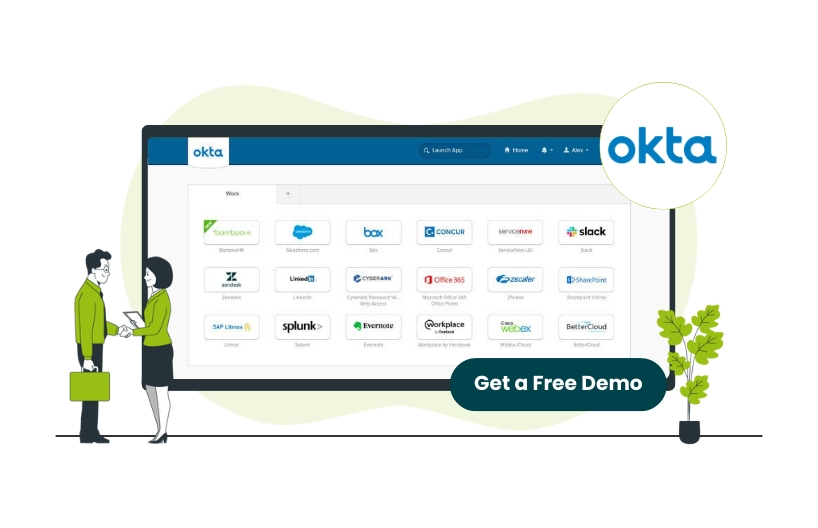
The modern corporate workplace culture requires more focus on security than ever before. It is no longer confined to controlling access to the premises but extends to safeguarding digital assets, securing communications, and protecting sensitive data from cyber threats.
To combat these challenges, it has become the need of the hour for businesses to implement a powerful information technology (IT) and access management solution. Since there are numerous options available, picking the one that perfectly aligns with your company’s objective can be difficult.
To simplify your selection process, we present Rippling HR and Okta, two prominent names in the industry. Let’s explore which one stands out in this detailed Rippling vs Okta comparison.
Feature | Rippling | Okta |
Identity Management | Unified HRIS integration, SSO, MFA, and granular access controls | SSO, MFA, Identity Governance, and Privileged Access Management for advanced security |
Ease Of Use | Intuitive interface but can be overwhelming initially | User-friendly design with a centralized dashboard and strong support resources |
Solutions | Supports various industries with scalable, customizable solutions | Tailored solutions for industries like healthcare, finance, and public sector with regulatory compliance |
Integrations | 600+ integrations, including Slack, Zoom, and Zendesk | 7,000+ integrations, including Google Workspace, HubSpot, and Dropbox Business |
Pricing | Flexible à la carte pricing; scalable but can be costly with added features | Modular pricing: higher costs for advanced features and a $1,500 minimum contract |

Rippling is a comprehensive platform that streamlines various business operations, including human resources (HR), payroll, and IT management. Particularly focusing on IT management for this comparison, it offers end-to-end solutions, enabling the IT team to manage identity and access, devices, and inventory from a single, unified system.
This integration reduces the need for multiple tools, thereby cutting administrative work and strengthening the organization's security posture.
Unique Features Of Rippling
Pros And Cons Of Rippling
Pros
- Can be implemented easily with step-by-step instructions available
- Offers a wide range of support channels with quick response time
- Provides a centralized dashboard, enabling users to manage all their tasks from one place
Cons
- The mobile app often takes a while to load
- The reporting feature lacks customization

Okta is an identity and access management (IAM) platform that helps organizations securely manage user authentication, access control, and identity lifecycle processes. It offers a centralized hub for user identity management, enabling businesses to streamline login experiences, enforce security policies, and protect sensitive data across a wide array of applications and devices.
Unique Features Of Okta
Pros And Cons Of Okta
Pros
- Offers customizable workflows, enabling automation of user-level scenarios for enhanced efficiency
- Simplifies access with a one-step sign-in for various tools like Ujet, Kustomer, and Playvox
- A highly versatile platform that enables users to easily add and integrate new services within the system
Cons
- Offers limited offline access, which can potentially disrupt workflows in remote or low-connectivity environments
- Lacks sufficient tutorials, making it harder to fully explore Okta’s potential

When comparing Rippling and Okta, the choice ultimately depends on your organization's specific needs and priorities.
Rippling is the better choice if you want HR, IT, and spend management functionalities combined into a single platform. Okta, on the contrary, suits companies that need standalone identity and access management software with more advanced features and integration capabilities.
In the end, it all boils down to your company’s requirements. So, evaluate their unique strengths and suitability for your company to make an informed choice.
